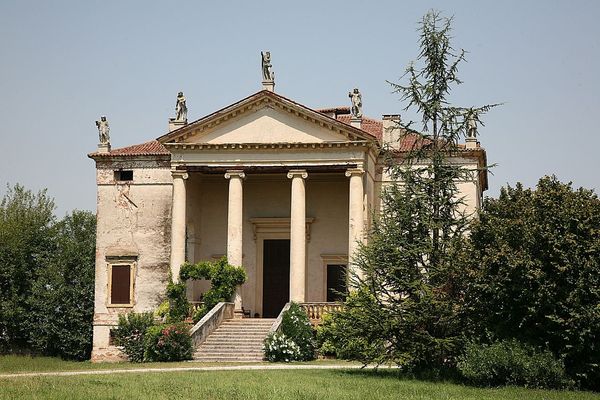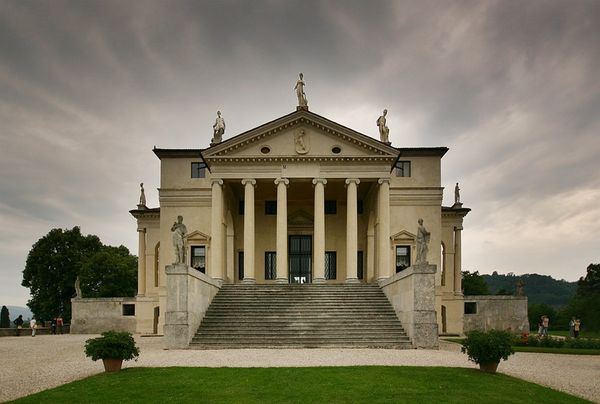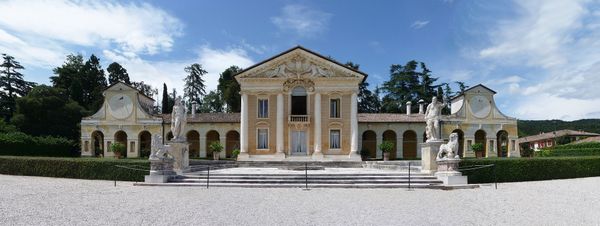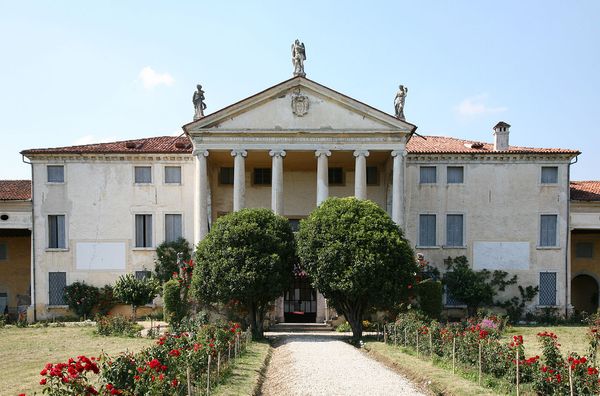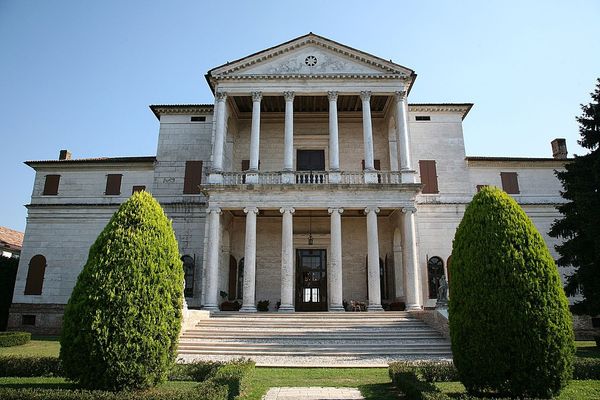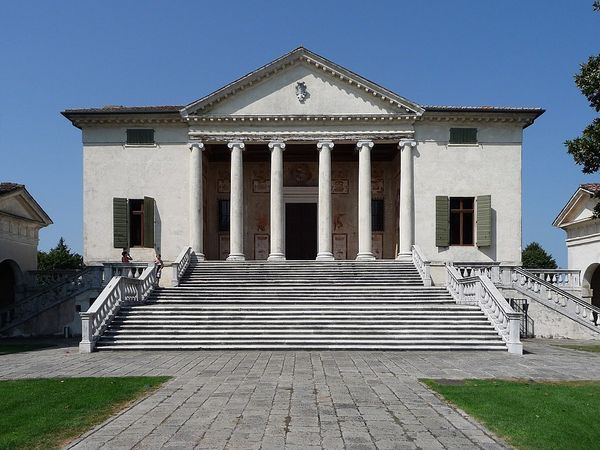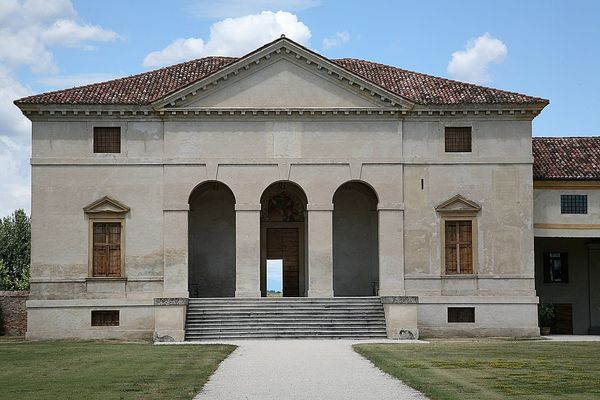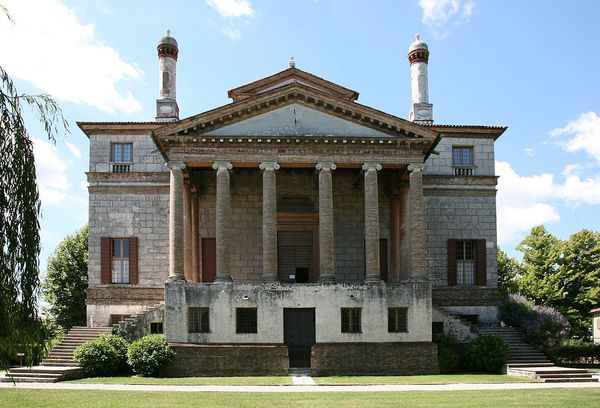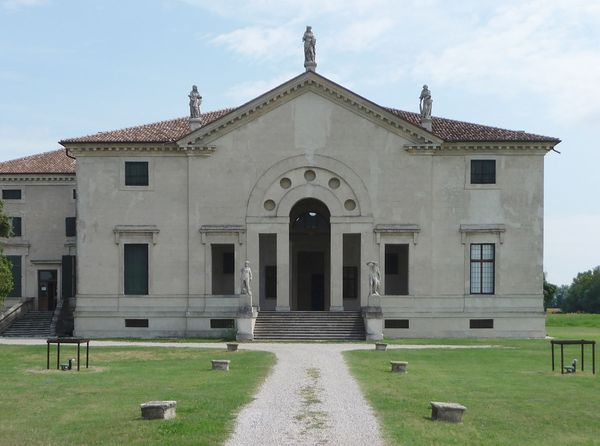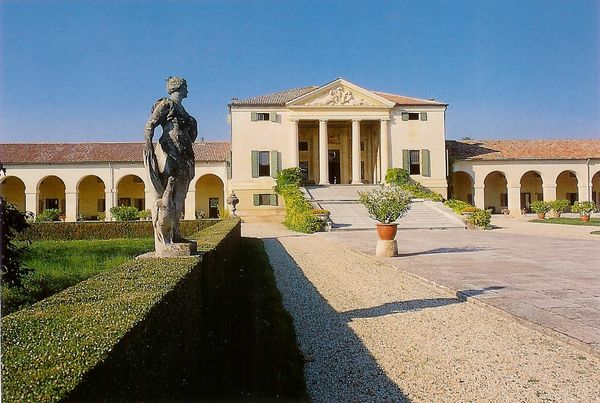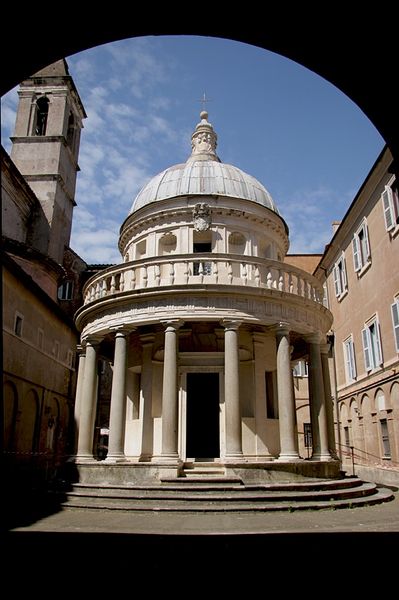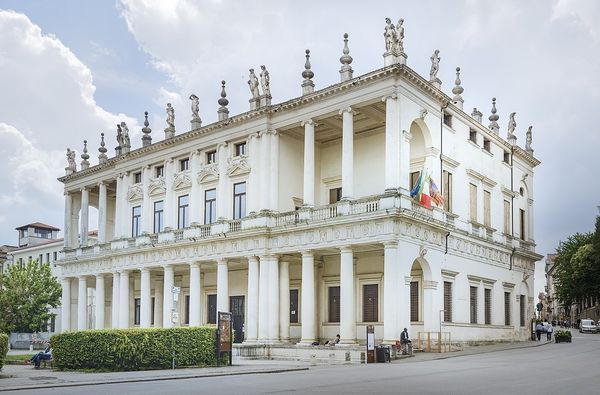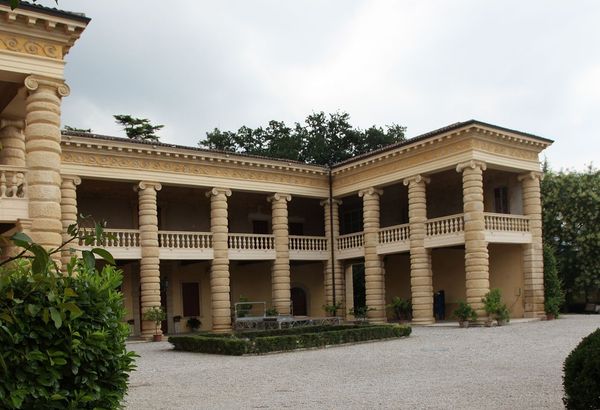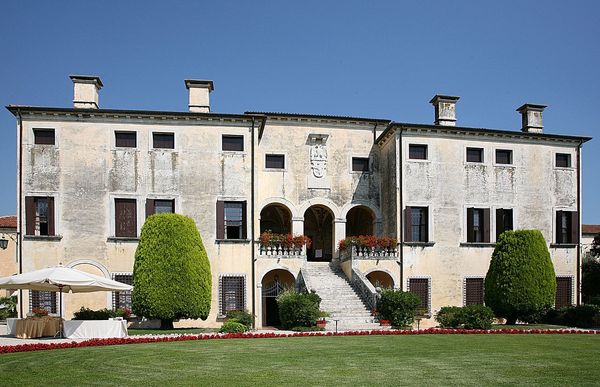
site-specific, architecture
#
landscape
#
site-specific
#
italian-renaissance
#
architecture
Copyright: Public domain
Andrea Palladio's Villa Porto in Vivaro di Dueville is a testament to the enduring influence of classical architecture, realized with local materials and labor. Built with readily available brick and stone, the villa's construction involved a workforce skilled in traditional techniques. The symmetrical facade, the prominent columns and triangular pediment, all speak to Palladio's deep understanding of Roman architectural principles. But consider the materiality: the weight of the stone, the texture of the rendered surfaces, and the sheer volume of bricks required. These considerations would have demanded not only the architect's vision but also a well-organized system of labor. The quarries, the brick kilns, the transportation of materials – each step involved human effort, reflecting the social and economic realities of the time. Looking at Villa Porto, we see more than just a beautiful building. We witness an intersection of design, materiality, and the historical context of its making, reminding us that even the most refined artistic achievements are rooted in the physical world and the hands that shape it.
Comments
No comments
Be the first to comment and join the conversation on the ultimate creative platform.
